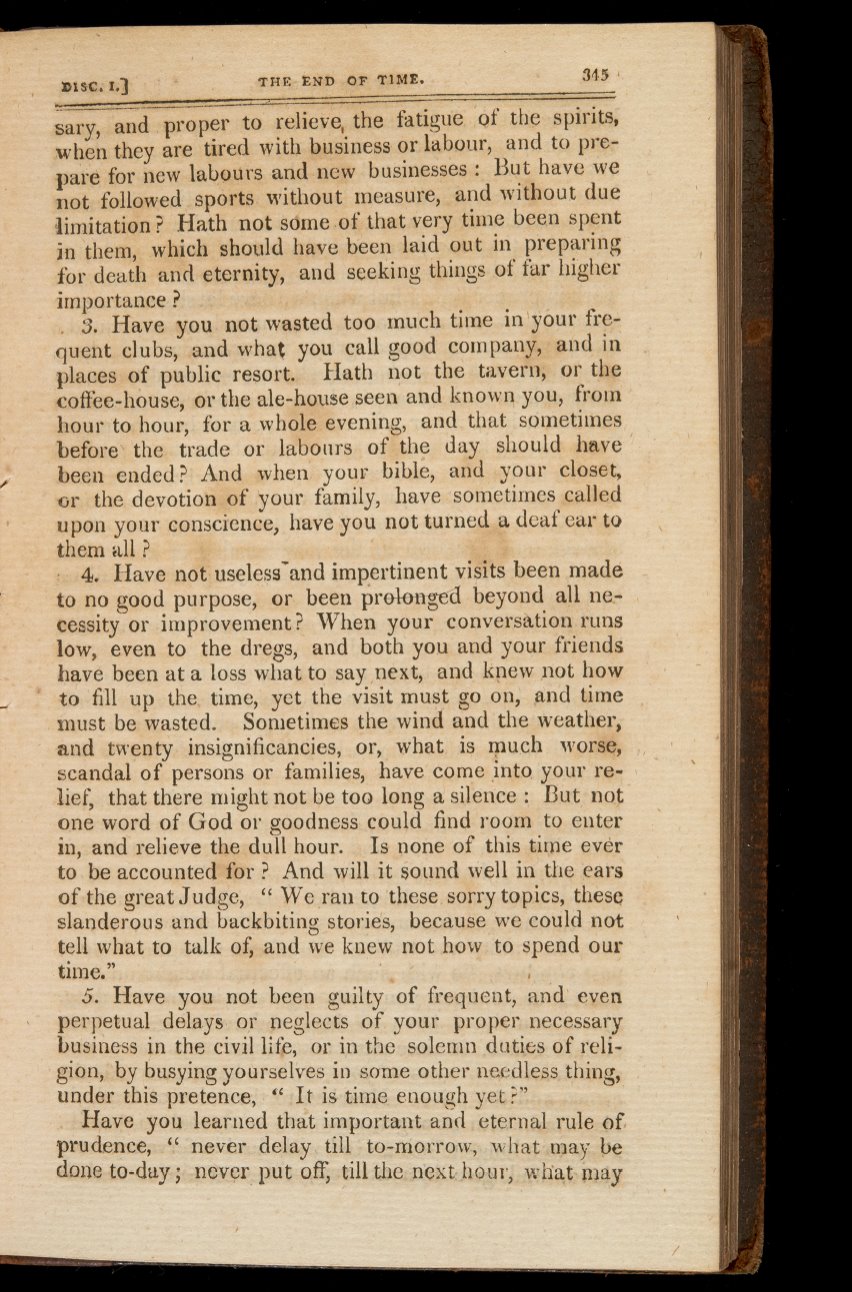

THE
END
OF
TIME.
345
sary, and
proper
to
relieve,
the fatigue
of
the spirits,
when
they
are
tired
with
business or labour, and
to
pre-
pare
for
new
labours and
new businesses
:
But
have
we
not
followed
sports without
measure, and
without due
limitation?
Hath not
some
of
that
very
time
been
spent
in
them, which
should have been laid
out
in
preparing
for death and eternity, and seeking
things
of far
higher
importance
?
.
3.
Have
you
not
wasted too much time in
your fre-
quent
clubs,
and what
you call
good company,
and
in
places
of
public resort.
Hath not
the tavern, or the
coffee-house, or the ale-house
seen and
known you, from
hour
to hour,
for
a whole evening,
and
that
sometimes
before the
trade or labours
of
the day should have
been ended
?
And when
your
bible,
and
your
closet,
or
the
devotion
of
your
family,
have sometimes called
upon
your
conscience, have you
not turned
a
deaf ear
to
them
all
?
4. Have
not
useless
-and
impertinent
visits
been made
to
no
good purpose, or been
prolonged beyond
all
ne-
cessity
or improvement?
When your conversation runs
low,
even to
the
dregs,
and both
you and
your friends
have been
at
a loss
what
to
say,next, and
knew
not
how
to
fill
up the time, yet the visit
must
go
on,
and
time
must
be wasted.
Sometimes the wind
and the weather,
and
twenty
insignificancies, or,
what
is
much
worse,
scandal
of
persons
or
families, have
come
into your
re-
lief,
that
there might
not
be
too long
a
silence
:
But not
one
word
of God
or goodness could
find
room
to
enter
in,
and relieve the dull
hour.
Is none of
this time
ever
to
be
accounted
for
?
And
will
it
sound
well
in
the
ears
of
the
great Judge,
"
We
ran
to these sorry topics, these
slanderous and backbiting
stories,
because
we
could
not
tell
what to talk
of,
and
we
knew
not
how to spend
our
time."
5.
Have
you
not been
guilty of frequent, and
even
perpetual
delays
or neglects
of
your proper
necessary
business in the
civil life,
or
in
the
solemn
duties
of
reli-
gion,
by busying
yourselves
in
some
other
needless thing,
under
this
pretence,
"
It
is time
enough yet
?"
Have
you
learned
that
important
and
eternal
rule
of
prudence,
"
never
delay
till
to- morrow,
what
may be
done to
-day;
never
put
off,
till the
next hour, what
may

















